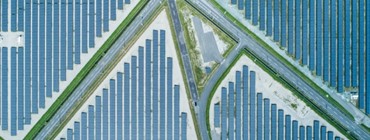Local governments, as the administrative body closest to the citizen, play a key role in shaping environmental policy. This is done both through the construction of infrastructure by local governments and by supporting the poorest residents at risk of energy poverty.
However, ongoing climate changes require ever greater investments to prevent their effects and ensure the energy security of residents. The scale of such investments is often a significant burden on local government budgets. It is therefore worth considering using available forms of support in this matter. One of them is the Green Urban Transformation Facility launched by Bank Gospodarstwa Krajowego. The program budget is nearly PLN 40 billion.
Funds for its implementation will come from the National Recovery Plan (NRP).
For whom?
The catalogue of entities eligible to benefit from support includes not only local government units. Housing cooperatives and municipal companies will also be able to apply for a preferential loan.
The exact scope of the program beneficiaries includes:
- local government units (communes, districts, voivodeships),
- inter-municipal agreements, associations of communes, counties and communes, municipal associations,
- energy communities (energy clusters, energy cooperatives),
- housing communities (HC),
- housing cooperatives (HC),
- entities with the participation of local government units with legal personality, including municipal companies.
For what?
Funds will be available for so-called "green urban transformation" projects.
The "green urban transformation" means activities contributing to the reduction of the negative impact of people on the natural environment and leading to climate neutrality.
Examples of such activities include:
- using renewable energy sources,
- implementing energy-efficient lighting technologies for roads, public buildings and public spaces,
- increasing energy efficiency and using renewable energy sources in public buildings,
- creating safe and green infrastructure,
- developing distributed and civic energy,
- developing water management systems, air monitoring, managing urban greening and smart city technologies,
- developing zero-emission transport infrastructure (walking, cycling),
- increasing green areas in cities and biologically active areas,
- creating education and training centers in the field of green transformation using advanced technologies.
On what terms?
Support will be provided in the form of preferential loans (interest rate from 0 to 1% per annum).
Part of the borrowed capital will be subject to amortization (5% of the capital).
Loans will be repayable over a maximum of 20 years.
The loan will be able to cover up to 100% of the net investment costs.
Preferential loans will be granted in amounts ranging from PLN 2 million to PLN 500 million.
Importantly, funding is now available, the call for proposals was launched on April 5. It will last until the third quarter of 2026 or until the pool of funds is exhausted.
PwC comment
Climate change is no longer just a topic of academic debates, but we are observing it in our environment with increasing intensity. Despite actions taken at national levels to reduce them, we still have a long way to go to reverse these negative trends.
It is therefore worth taking advantage of all available forms of support in this regard. Our cities require investments that will improve the quality of life of residents and eliminate the negative impact of climate change.
The PwC State Aid team will be happy to answer any questions you may have regarding the support discussed in this article and other available support mechanisms.
